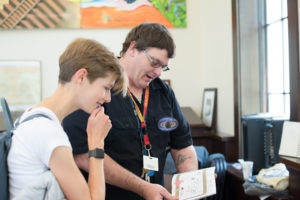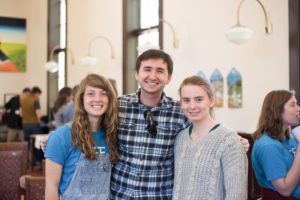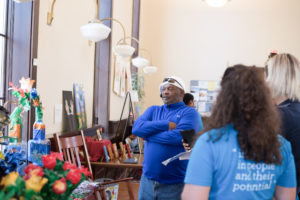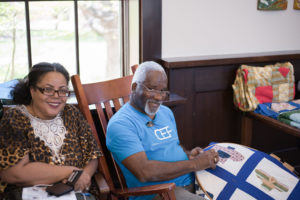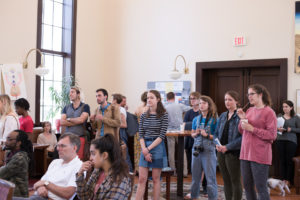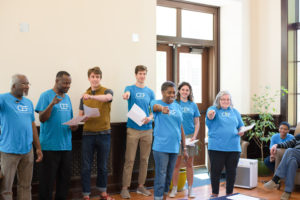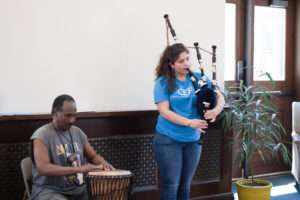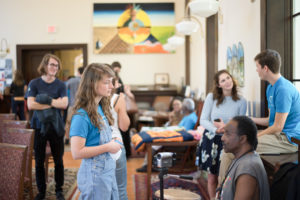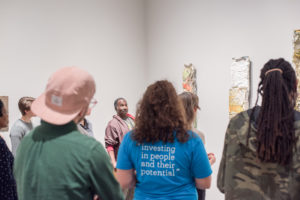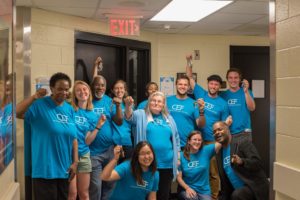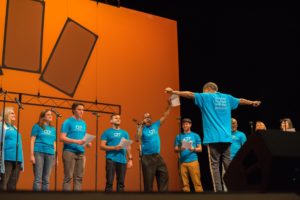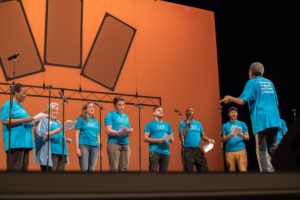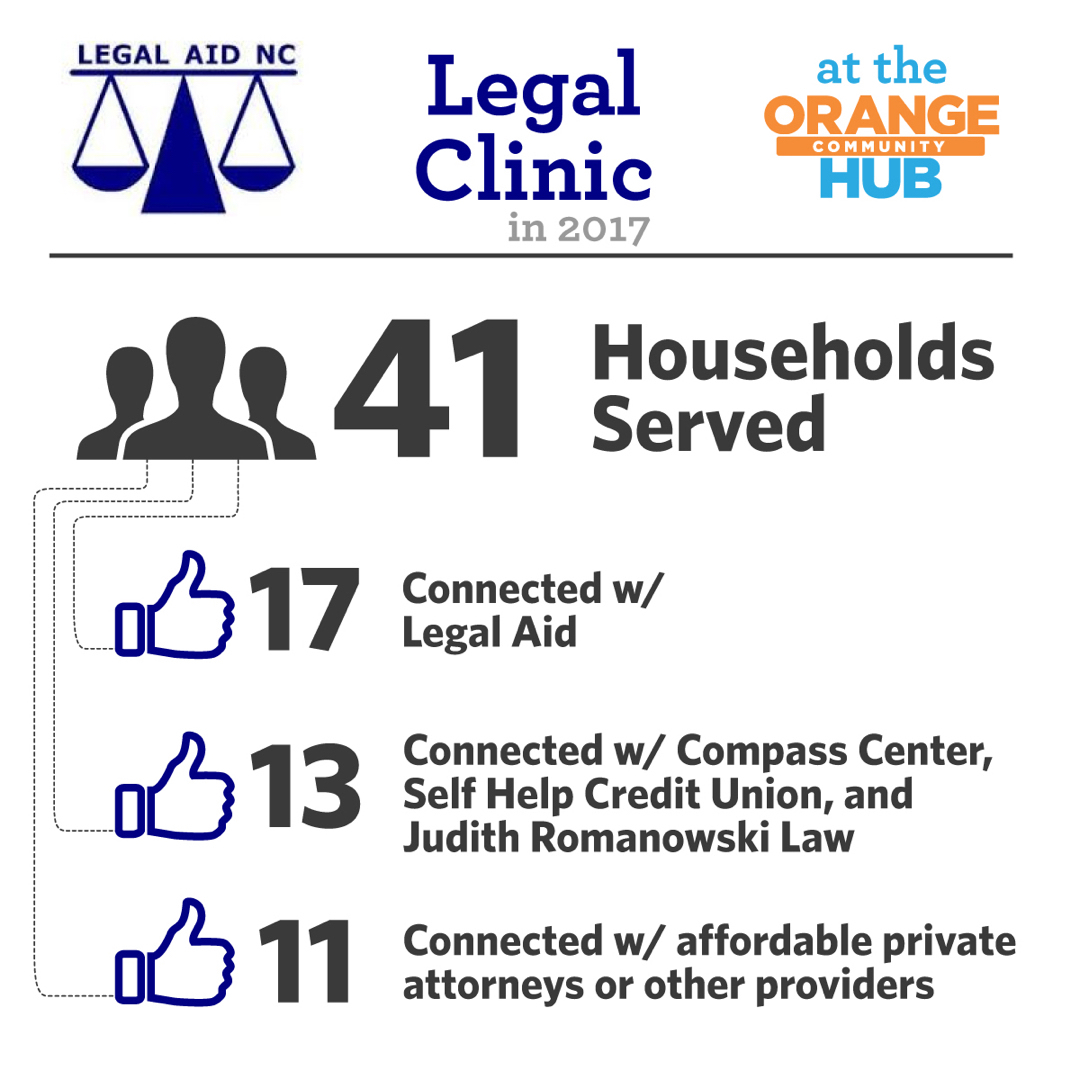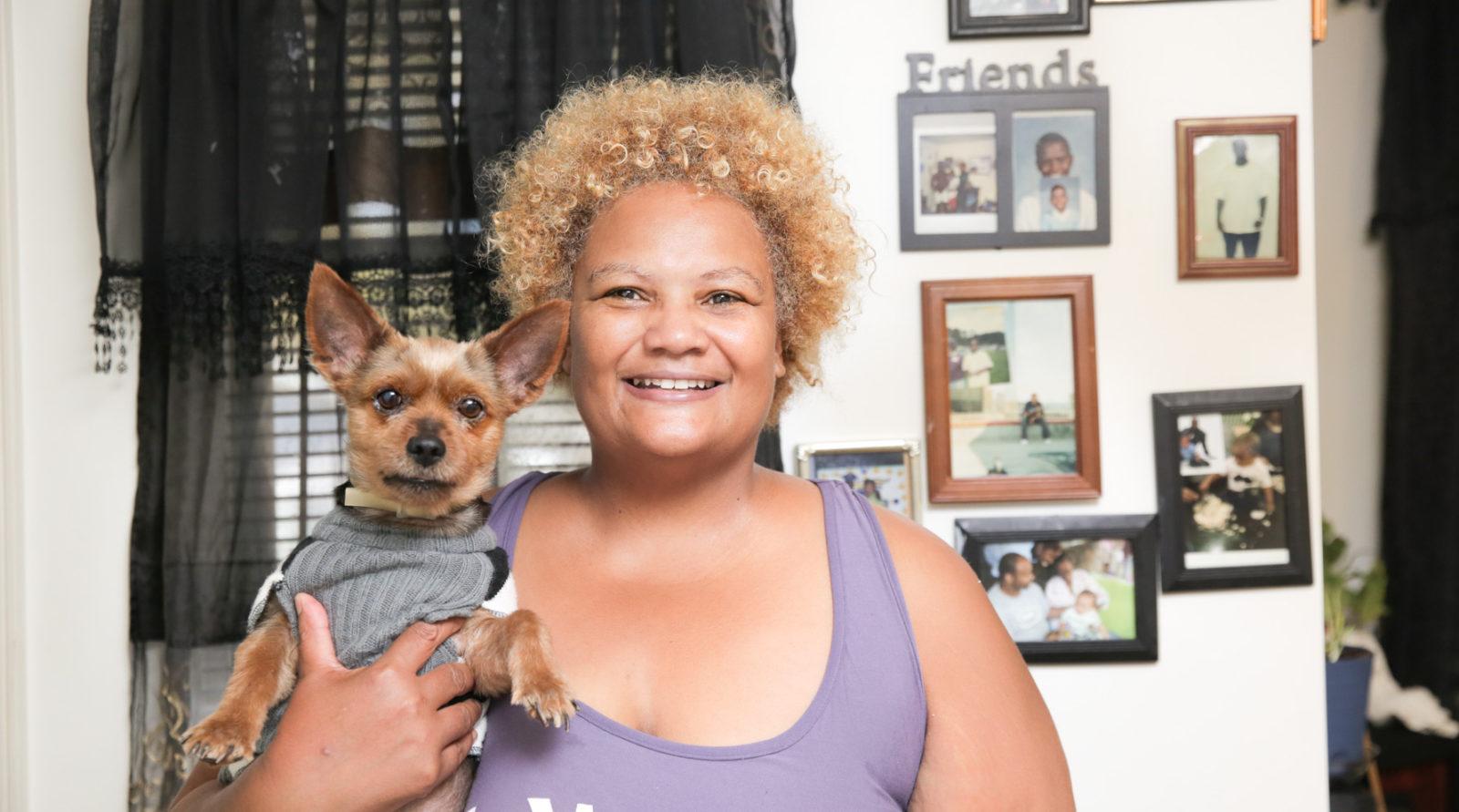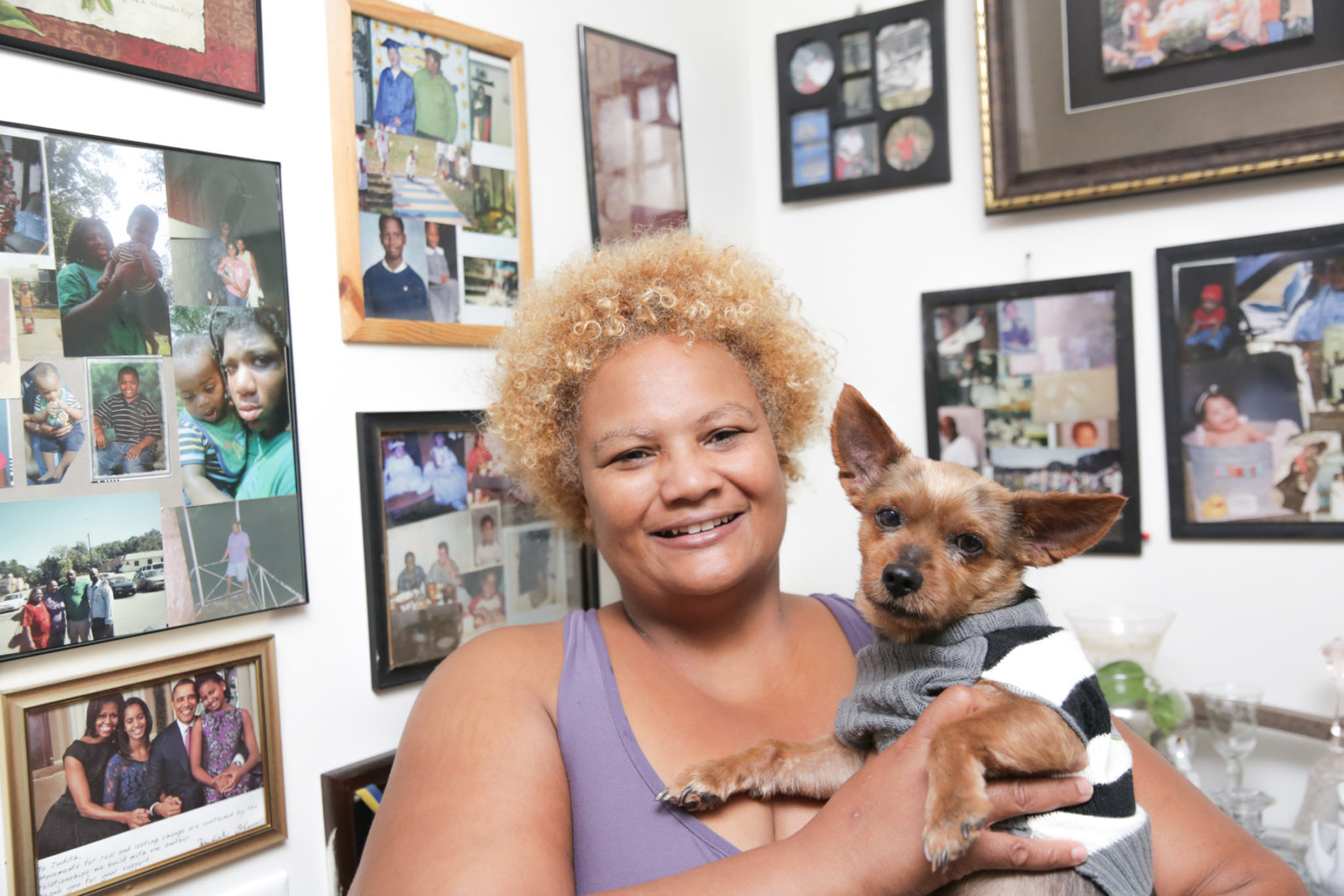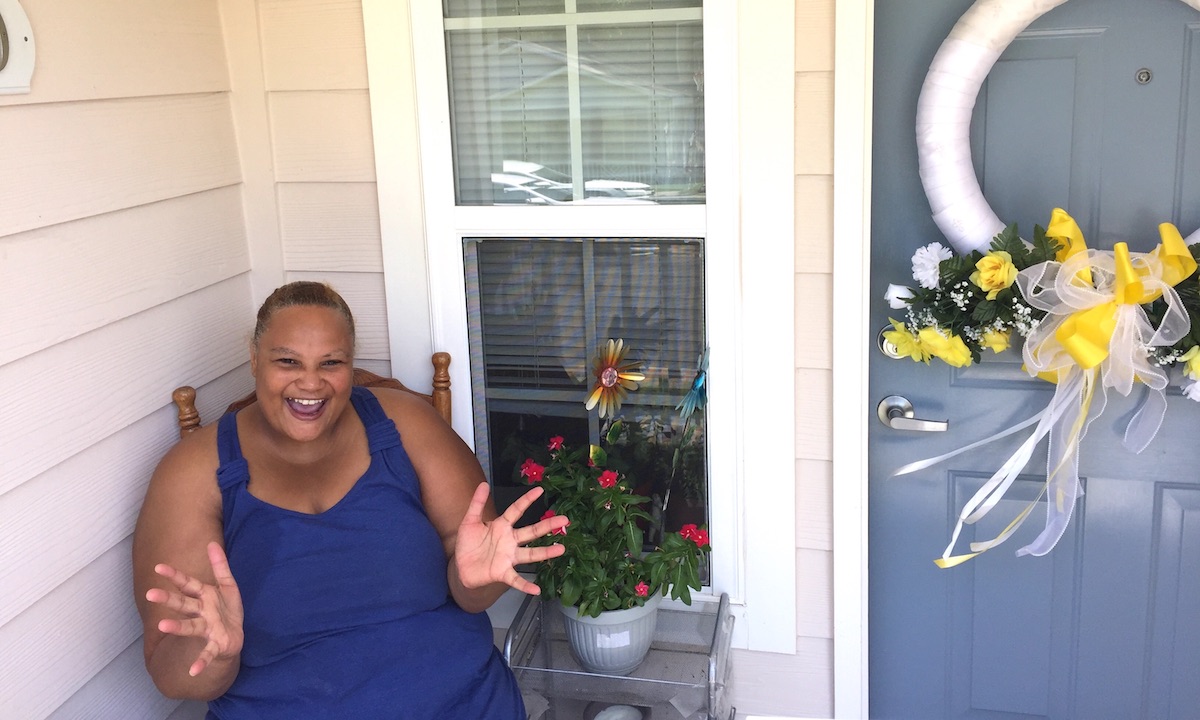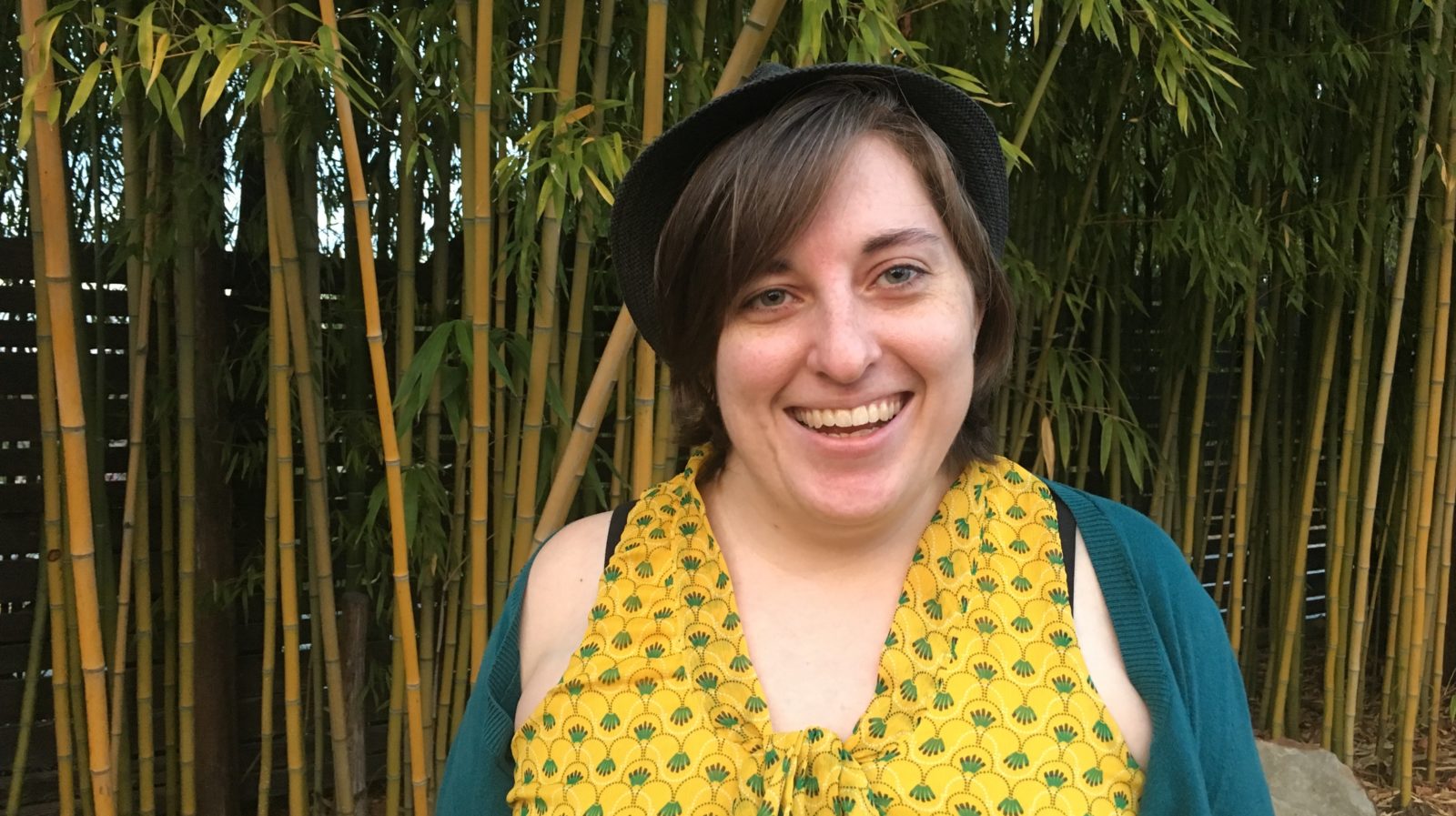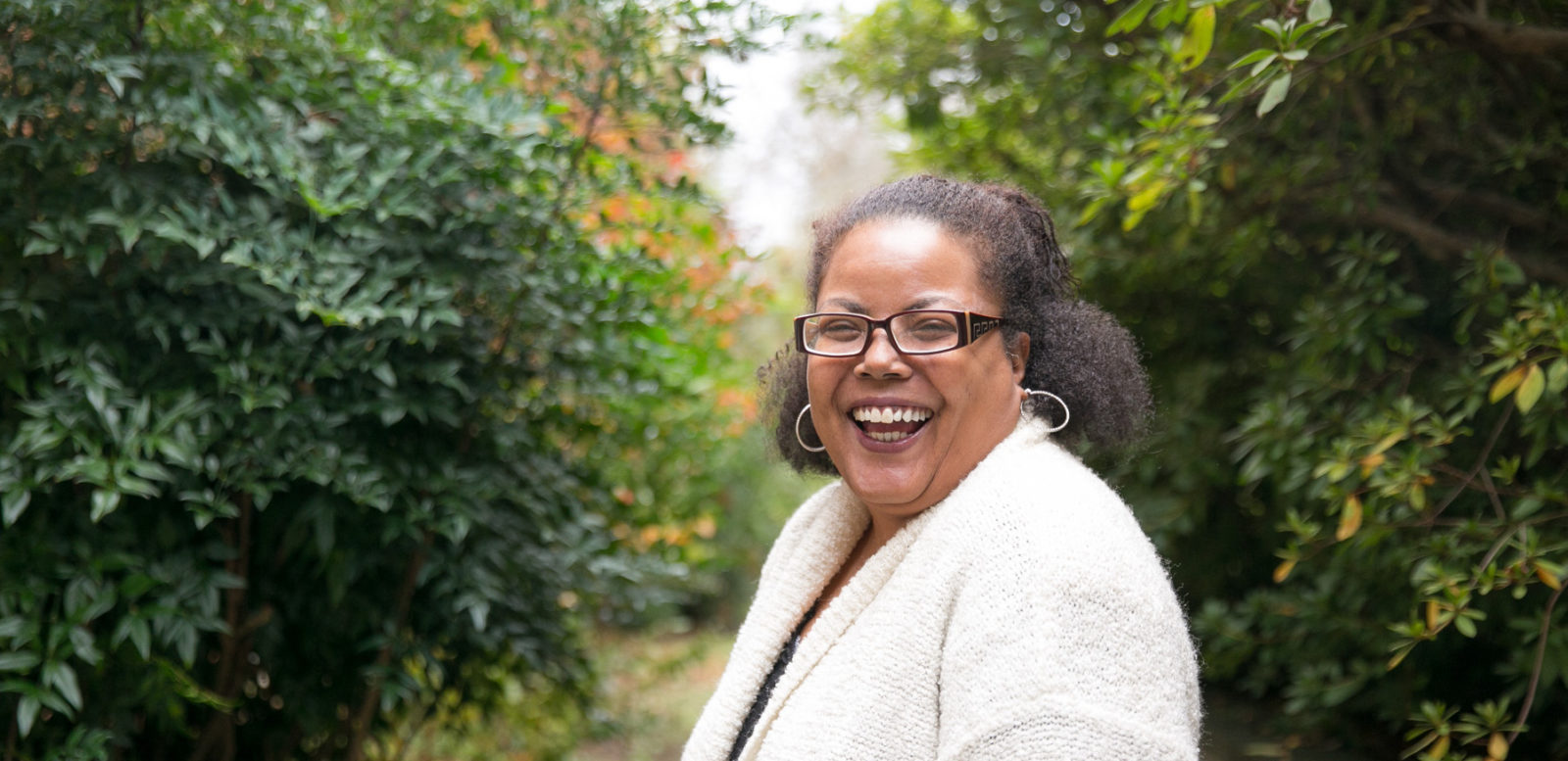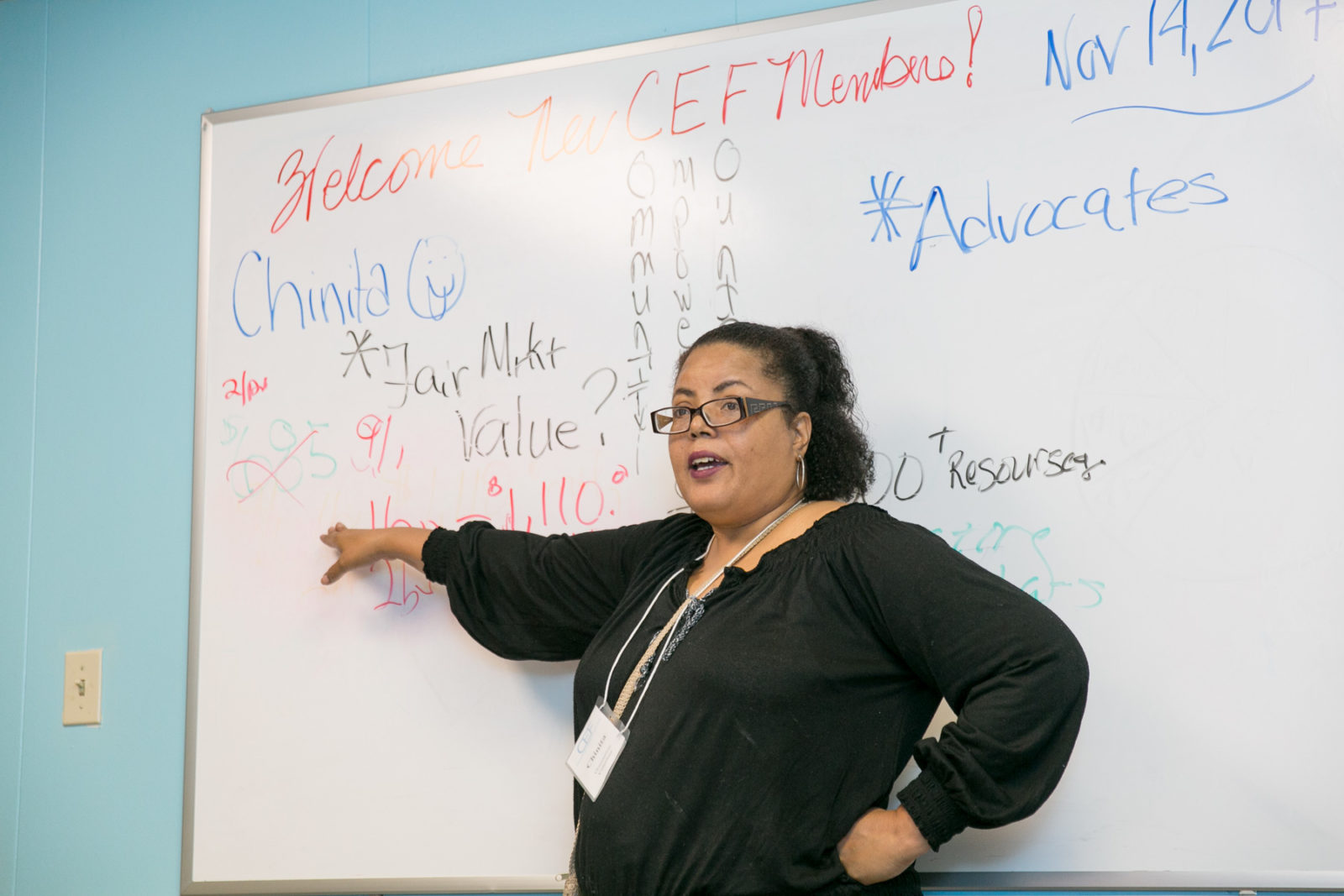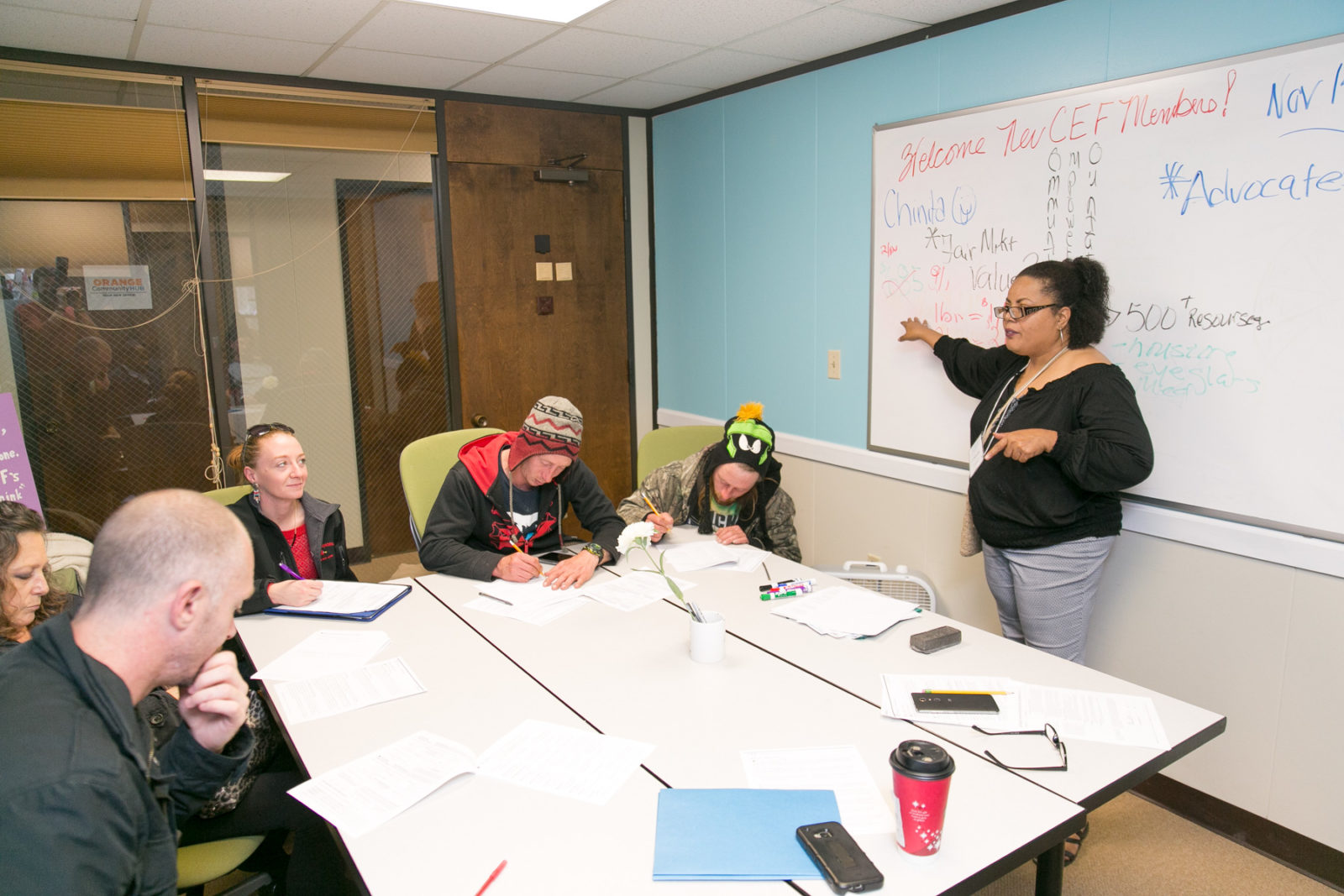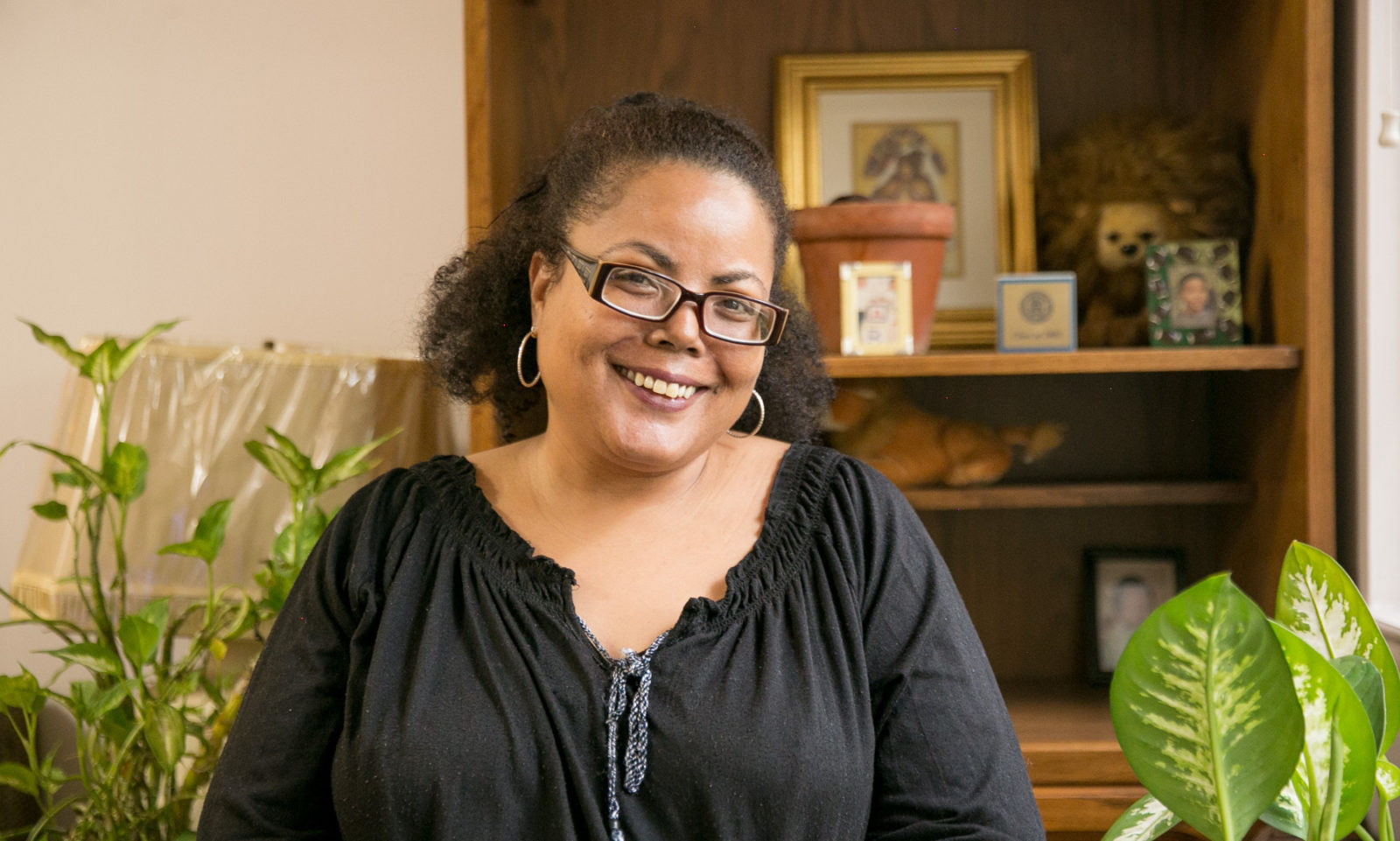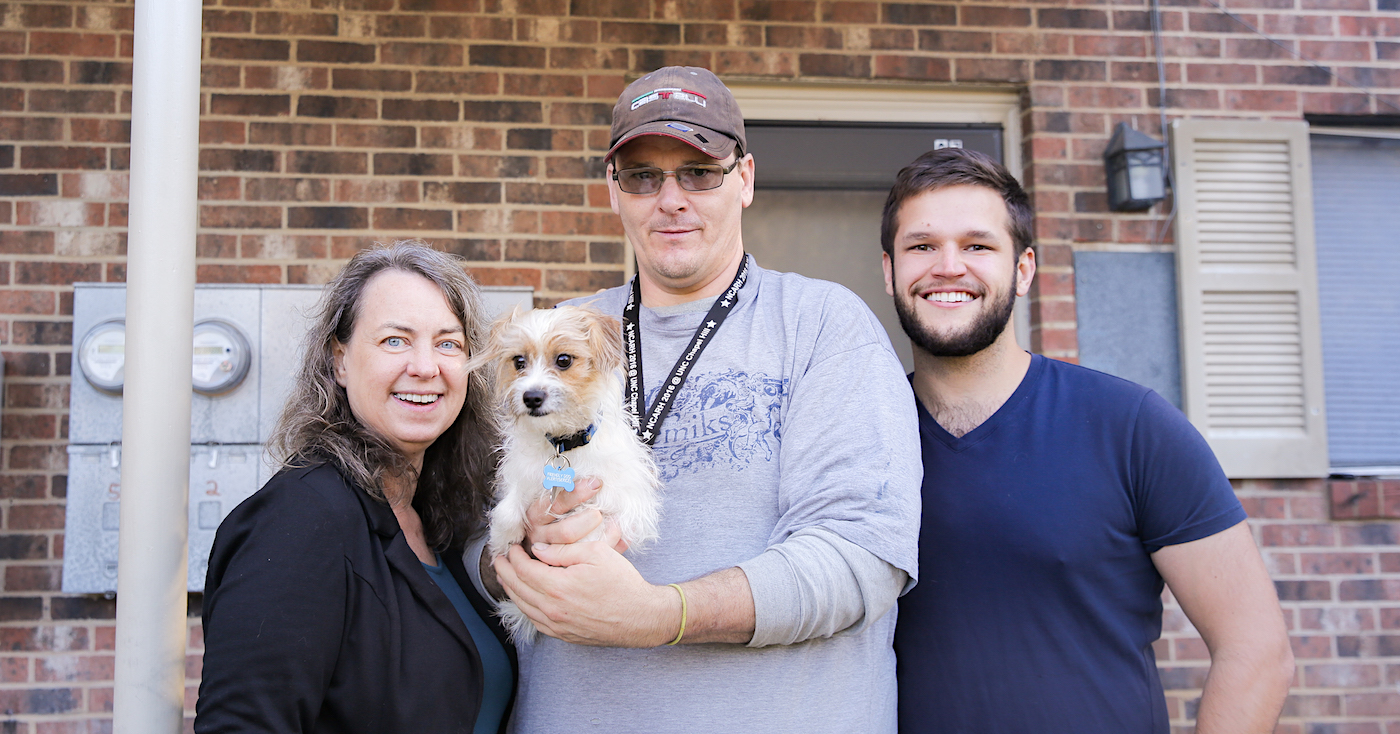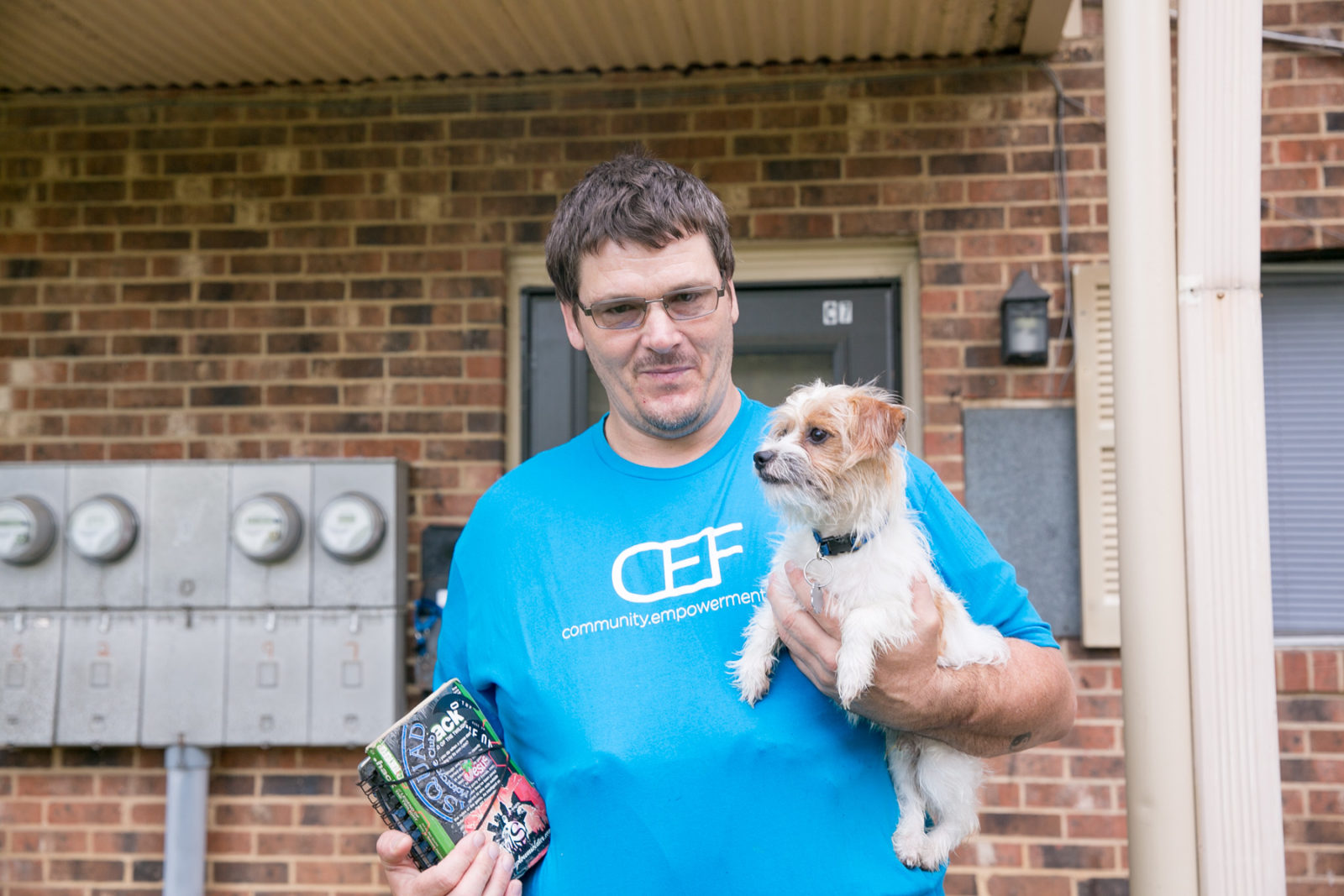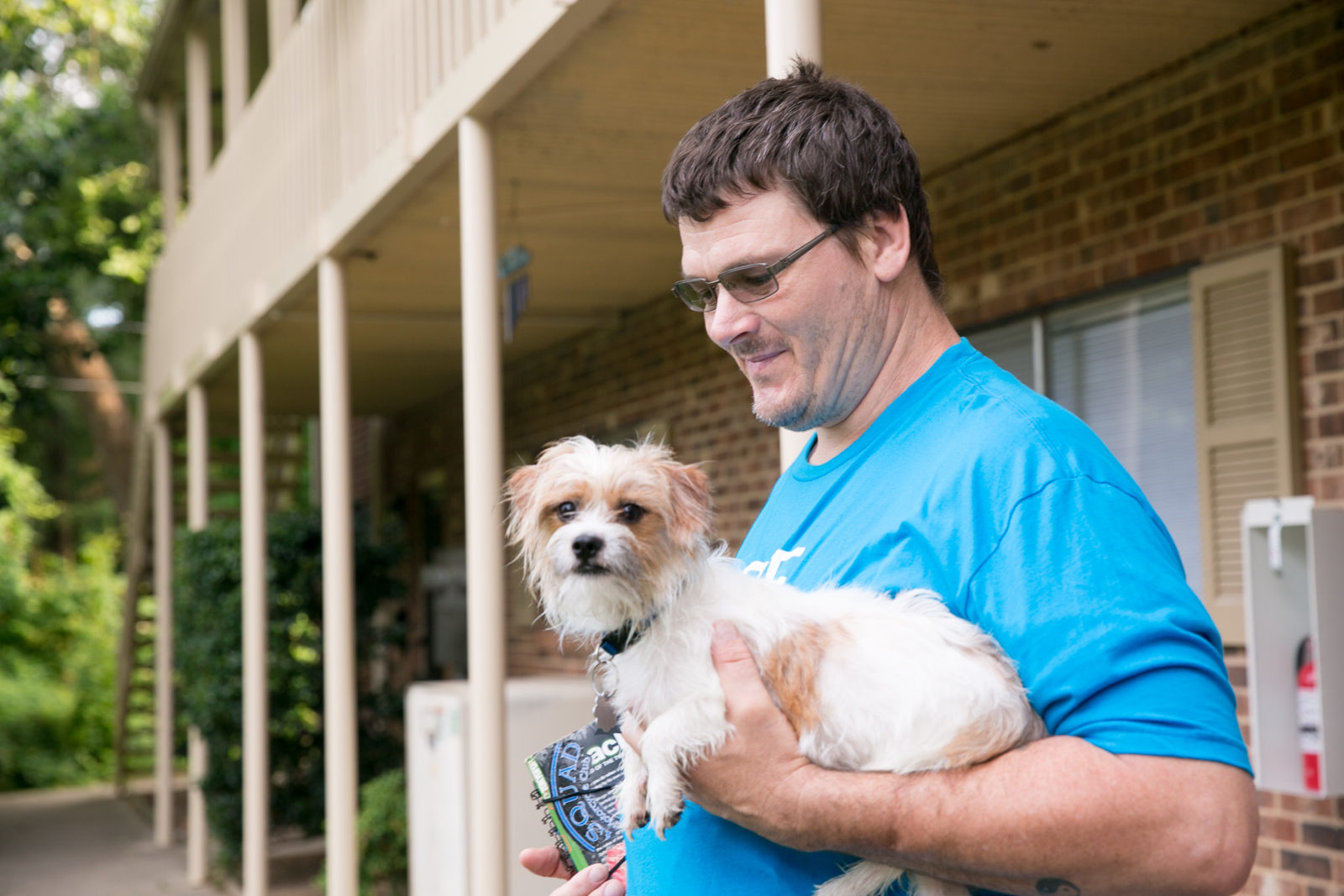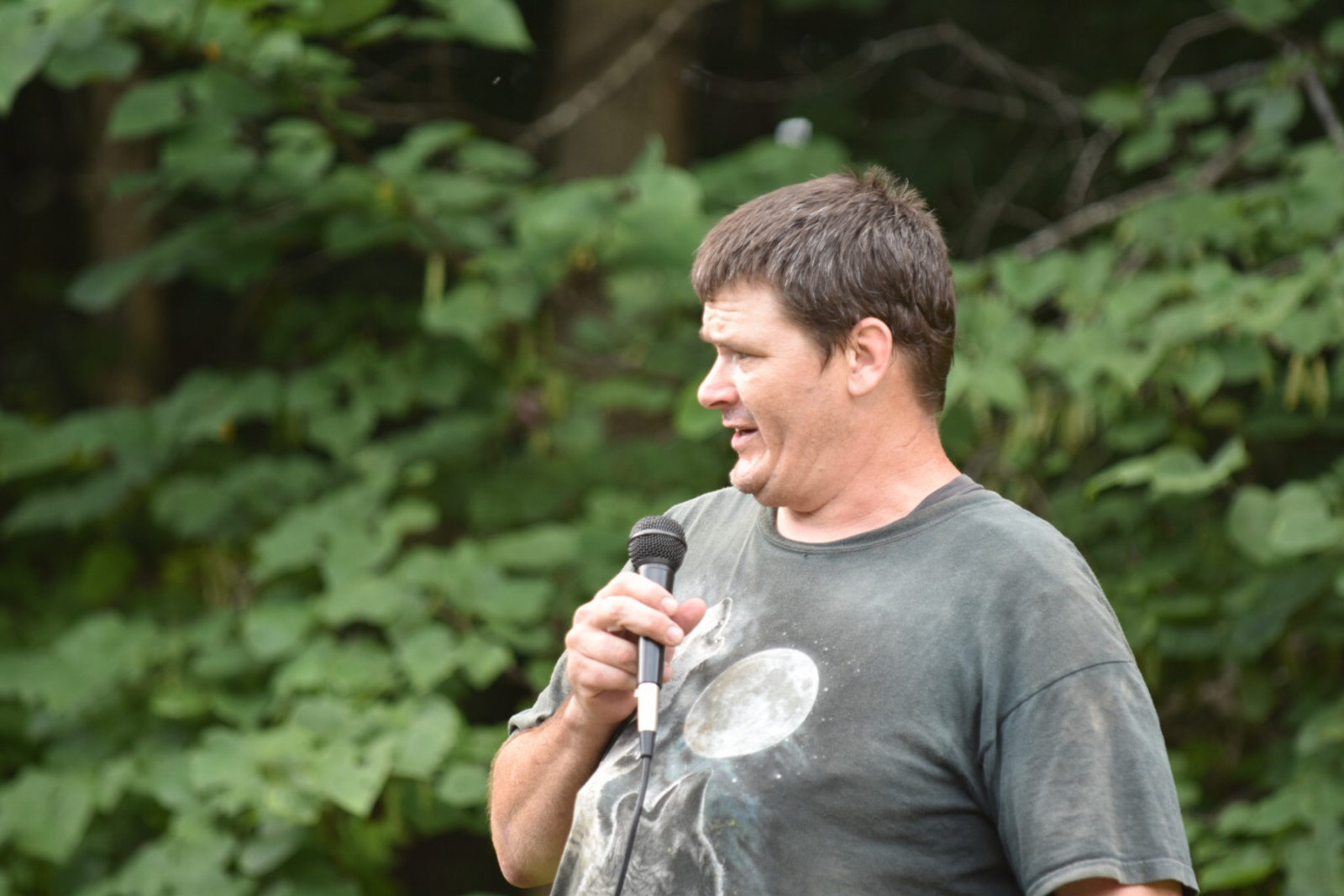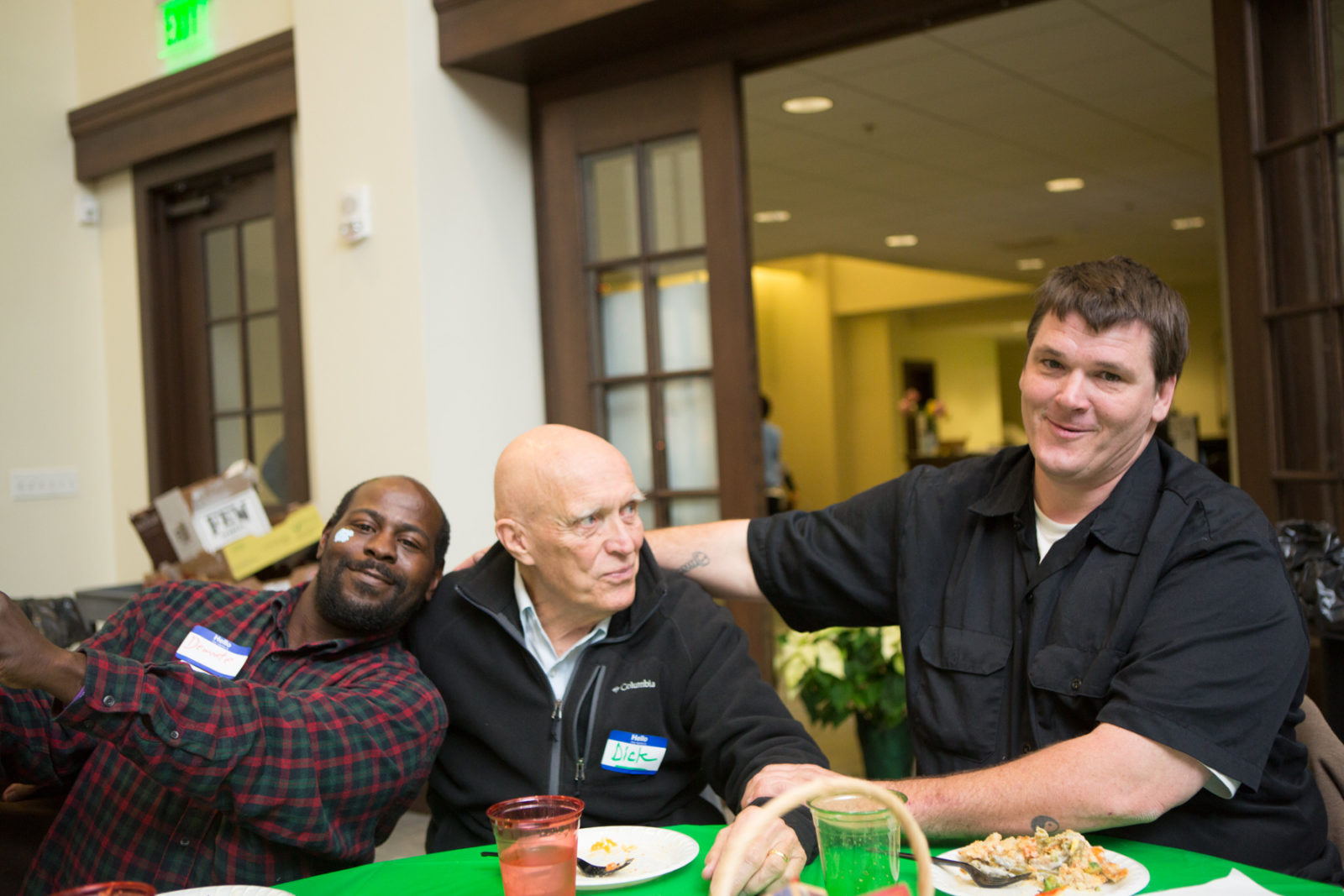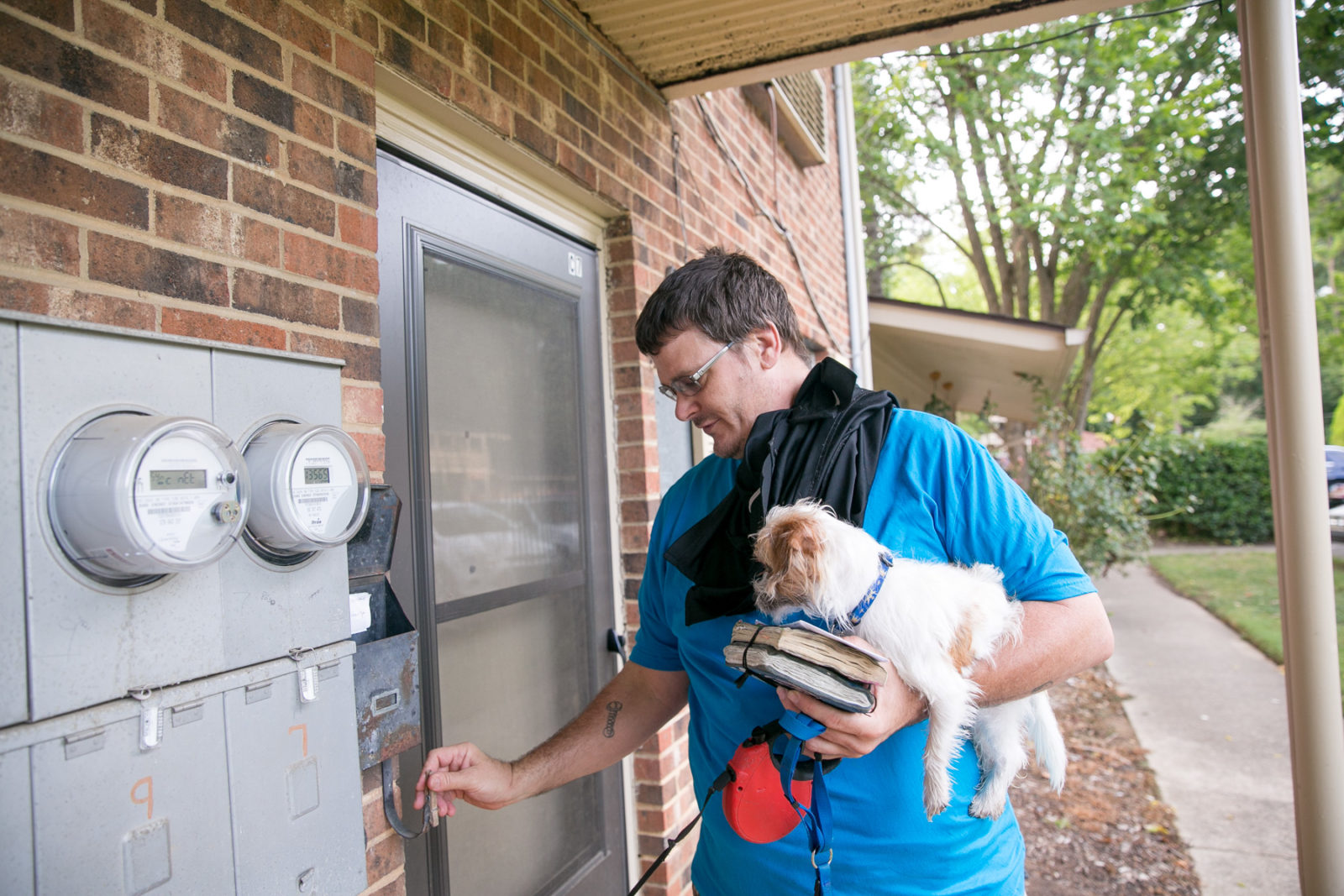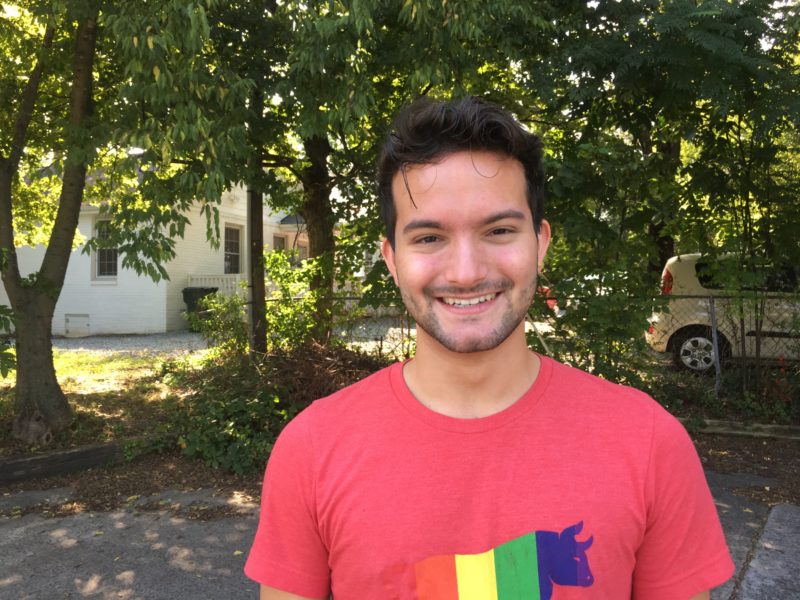Community and Identity
Sharing in community is a part of how Cameron moves through the world, tapping into his different strengths and abilities. At CEF’s Financial Independence Day this summer, Cameron was honored for his participation and leadership at Opportunity Class and was inducted as a CEF Alumni Ambassador. He has been to over 100 classes, and now often acts as a co-facilitator for class discussions alongside lead facilitator, Mike Wood. He comes each week, helps to set up the room, and is always eager to share and support anyone who comes. “One of my things, is try to be encouraging—to point out the things that they are already doing… ‘Don’t let it discourage you.’”
Cameron is also an artist; his backpack is often filled with a mix of mechanical sketches and abstract designs. The creations were featured in the CEF Art Show last April. “I found it very enriching, I was grateful for the opportunity to show it. Whoever came by seemed to like the flow of it, a lot of people there were able to get a positive result.” His process often combines elements of found-art and collage with vibrant patterns and design.
Cameron is also a regular and co-facilitator at Talking Sidewalks, a weekly gathering of CEF Members and Advocates who come to share life stories, teachings and thoughts in a communal and supportive space. “Here everyone’s giving a voice or an opinion—how we feel—people like that; a soundboard… we come to a place where we can put out our feelings and thoughts and sit and talk and voice.”
Foundations for the Future
Cameron can most always be seen with his sidekick dog Gizmo, one of CEF’s unofficial canine mascots. Gizmo seems to also be enjoying the benefits of the new home that they now share: “I think he’s as happy as I am. I think wherever I am he’s happy to be.” Even more, Cameron doesn’t have to worry anymore about leaving Gizmo at a campsite as he pursues his next step, heading back to school.
“I’ve been working on trying to go to school, and I think having a place will definitely be better, have more advantages. I’ll be more at ease.” This summer he secured grant funding and enrolled in an automotive program at Durham Tech. Previously, Cameron started an automotive training program while still living in the woods, trying to advance his career and make a way for himself. This time around is really different with a secure place to live. Cameron is doing great in his classes, and is able to focus, concentrate and study.
Cameron’s home is the foundation for greater education and the chance to pursue lifelong dreams of working as an automotive mechanic. It’s also a place where he can just enjoy the small things, like making a good meal for himself and his friends. “[We] bought some peppers, some salmon, a red onion, some oil, some romaine lettuce… They took the romaine lettuce and they cut it in half, and I knew how to cut peppers. I basically made this semi-elaborate meal. A really decent meal that I made with sea-salt! I’m trying to do more healthy eating now—sea-salt, brown rice not white rice… It just makes me appreciate now, having come to a better place now.”

